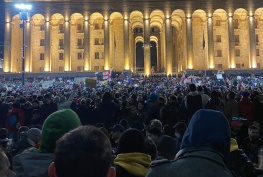BY DANIEL PEARL FELLOW ASMA GHRIBI
I had heard and read about the U.S. system of open records, but only during my experience at the Wall Street Journal, did I experience it firsthand.
I spent the first few months of my fellowship reporting on corporate earnings. I was surprised to learn that publicly-traded companies are obliged by law to publish their earnings reports, as well quarterly reports detailing how much money they made or lost, among other important information.
After some time, I heard some colleagues talking about FOIA, the Freedom of Information Act. Coming from Tunisia where there is usually a discrepancy between law and practice, I still doubted the effectiveness of such a law. While a similar law exists in Tunisia, government officials have always found loopholes to evade providing the information.
However, that is not the case here.
FOIA stands out as a good weapon for U.S. journalists.
In Tunisia, a real challenge remains to raise people’s awareness of the importance of the right to access public records.
One of the differences between an established democracy such as the U.S. and an aspiring democracy such as Tunisia, is that while FOIA for has been in place in the U.S. since the 1960s, the notion of transparency and open records only became familiar to the Tunisian general public after the January 2011 uprising that led to the ouster of the country’ strongman Zine Abidine Ben Ali.
Many activists were persecuted under the former regime for calling for freedom of information and transparency. A few months after the uprising, the country’s transitional legislative body rushed in and passed what is commonly known in the country as “decree 41” — a piece of legislation granting access to public administrative documents.
Tunisia was also among the first African countries — and still among the few — to join the Open Government Partnership, an international initiative begun in 2011 to enhance transparency around the world and provide local actors with a platform to bring government and civil society together.
Despite these achievements, there is still a room for improvement. Civil society organizations still push for more transparency and advocate for a more robust legal framework protecting access to public records.
Tunisia’s democracy is still fragile. Transparency and public oversight are crucial to its survival and sustainability.




